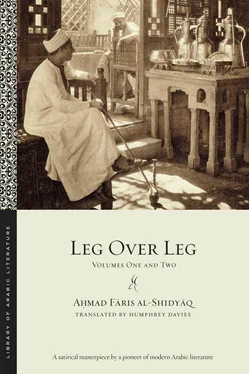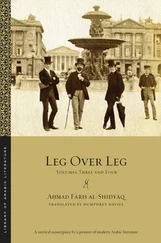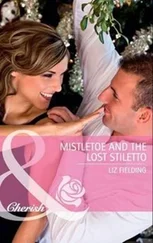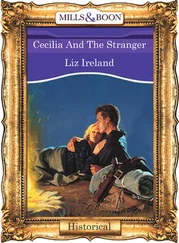and the kharbaṣīṣ ,
“a pair of earrings, or something grain-shaped worn as jewelry”
and the khurṣ ,
“a hoop of gold or of silver, or the hoop of an earring, or a small hoop worn as decoration”
and the ḥawṭ ,
“a twisted black and red thread on which are beads, or a silver crescent that a woman wears on her waist so that the evil eye will do her no harm”
and the simṭ ,
“a neck collar longer than the mikhnaqah ”
and the ʿulṭah ,
“a neck collar”
and the qurṭ ,
“the shanf , or an earring hung from the earlobe”
2.16.16
and the laṭṭ ,
“a neck collar made of dyed colocynth seeds”
and the anwāṭ ,
“pendant earrings”
and the raṣīʿah ,
“a round ornament on a sword, or any round ring on a sword, a saddle, or elsewhere”
and the shanf ,
“a top earring, or a pendant earring in the upper edge of the ear, or anything suspended from its upper part”
and the nuṭafah ,
“an earring, or pearl”
and the waqf ,
“an ivory bracelet”
and the ḥizāq ,
“a thick bracelet”
and the ḥilq ,
“a silver finger ring without bezel, or ‘the Ring of Power’” 625
and the mikhnaqah ,
“a necklace”; synonyms minzaqah and miʿnaqah
and the khawq ,
“the ring of the qurṭ or the shanf ”
2.16.17
and the daysaq ,
“any ornament made of pure white silver”
and the zunāq ,
“anything tied under the chin”
and the sawdhaq ,
“a bracelet, or a woman’s bracelet”
and the ṭāriqiyyah ,
“a necklace”
and the ṭawq ,
[“decorative collar”] “too well known to require definition”
and the qalaqī ,
“a kind of necklace”
and masak ,
“bracelets or anklets”
and the jadīl ,
“a jeweled sash”
and ḥulbah ,
“a kind of jewelry”
and the ḥijl ,
“an anklet”
2.16.18
and the mursalah ,
“a long necklace draped over the breast, or a necklace containing beads”
and the sidl ,
“a simṭ of pearls that reaches the breast”
and ashkāl ,
“jewelry made of pearls and silver, each element resembling the next, which women wear as earrings; singular shakl ”
and the ṭiml ,
“a necklace (synonym ṭimīl ), because it is ‘impregnated ( tuṭmalu ),’ i.e., smeared with perfume”
and the qabal ,
“a round thing of ivory that shines and is hung on a woman’s breast”
and the qirmil ,
“something a woman ties around her head”
and the iklīl ,
“something resembling a headband that is decorated with gems”
and maḥāl ,
“a kind of jewelry”
and nakhl ,
“a kind of jewelry”
and tahāwīl ,
“different colors, or decoration in the form of drawn figures and engravings”
2.16.19
and the barīm ,
“a woman’s cord in which there are two colors and which is decorated with gems”
and tawāʾim ,
“ tawāʾim pearls are those that are joined together”
and the tūmah ,
“a pearl, or an earring containing a large drop”
and the khātam ,
[“finger ring”] “too well known to require definition”
and the ʿiṣmah ,
“a necklace”
and the karm ,
“a necklace, or a kind of work on a mikhnaqah , or ‘the Daughters of Karm’—ornaments that were made during the Days of Barbarism”
and the anẓām ,
“any thread on which beads are strung”
and the thuknah ,
“a necklace”
and the jumān ,
“a plaited strip of hide with beads of all colors on it that women wear as a sash”
and the burrah ,
“an anklet”
and the riyy ,
“a necklace, or the thing placed round the neck of a boy”
and the waniyyah ,
“a necklace of pearls”
and khashal .
“the terminals on bracelets or anklets”
2.16.20
W
ORK
G
ROUP
3: F
OR
M
AKING
P
ERFUME AND
C
ONCOCTING
F
RAGRANT
P
ASTES
including anāb ,
“musk, or an aromatic substance resembling it”
and jullāb ,
“rosewater”
and zarnab ,
“a perfume, or a sweet-smelling tree”
2.16.21
and kurkub ,
“a sweet-smelling plant”
and malāb ,
“an aromatic substance, or saffron”
and shathth ,
“sweet-smelling plants used in tanning”
and yalanjūj ,
“aloe wood”
and rabāḥī ,
“a kind of camphor”
and murannaḥ ,
“best-quality aloe wood”
and rayḥān ,
“a [particular] sweet-smelling plant [i.e., ‘basil’] or any plant of that nature”
and shīḥ ,
“a sweet-smelling plant”
and ṣayyāḥ ,
“an aromatic substance, or a perfume for washing with”
and naḍūḥ ,
“perfume”
and salīkhah ,
“an aromatic substance like peeled bark, or the fat from the fruit of the ben tree before it is pulped”
and labīkhah ,
“a vesica of musk”
and lakhlakhah ,
“a perfume, too well known to require definition”
and suʿd ,
“a perfume, too well known to require definition”
and rand ,
“a sweet-smelling tree, or aloe, or myrtle”
and zabād ,
[“civet”] “too well known to require definition”; synonym zuhm
and ʿabd ,
“a sweet-smelling plant”
2.16.22
and qindīd ,
“amber, or camphor, or musk, or a perfume made from saffron”
and nadd ,
[“ambergris”]“a perfume, too well known to require definition”
and ḥanīdh ,
“an ointment, or a scented wash”
and kādhī ,
“a tree bearing flowers with which ointment is perfumed”
and bahār ,
“a sweet-smelling plant”
and khaṭṭār ,
“an ointment made from oil with aromatic perfume”
and khumrah ,
“Indian yellow, or various kinds of perfume”
2.16.23
and dharīrah ,
“an aromatic substance”
and zabʿar ,
“a sweet-smelling plant”
and idhkhir ,
“sweet-smelling grasses”
and sāhiriyyah ,
“an aromatic substance”
and ḍaymurān ,
“Persian basil”
and muṭayyar ,
“aloe, or moistened aloe”
and ẓafār ,
“a sort of incense, so named because it resembles a fingernail ( ẓufr ) pulled from its root”
and ʿabīr ,
“saffron, or a mixture of perfumes”
and ʿabhar ,
“narcissus, or jasmine, or other plants”
and ʿiṭr ,
“an aromatic substance”
Читать дальше












